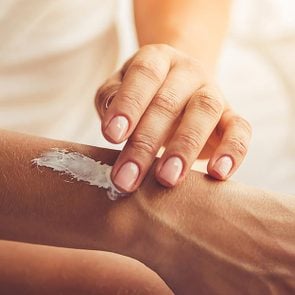Should You Choose Vegan Skin Care Products? Here’s What You Should Know
Updated: Jul. 09, 2024
Dermatologists explain what "vegan" means in skin care and what to look for when buying vegan skin care products. (Plus, six products they recommend, including vegan vitamin C serum, toner, and face oil.)
Our editors and experts handpick every product we feature. We may earn a commission from your purchases.
A vegan lifestyle
It’s safe to say that “vegan” is more than a buzzword—it’s a real way of life for an increasing number of people. People who choose to eat a vegan diet may do so for a number of reasons. For some people, it’s about trying to exclude all forms of animal cruelty in all aspects of their life, including not only food, but clothes and household products too.
(Learn more about vegan clothing.)
Those everyday choices can extend to skin care products as well, with companies developing products that don’t have animal-derived ingredients, by-products or extracts, and are made without animal testing, notes Blair Murphy-Rose, MD, New York City-based dermatologist and clinical assistant professor at NY Presbyterian Hospital–Weill Cornell Medical Center. (Here are the skin care products our editors love.)
What does “vegan” mean when it comes to skin care?
Vegan skin care products are made entirely from plants, minerals, and safe synthetic materials, with no animal-derived ingredients, explains Nina Desai, MD, medical and cosmetic dermatologist in Manhattan Beach, California. This means that they exclude all animal-derived ingredients commonly used in skin care and cosmetic products including collagen, glycerin, lanolin, keratin, and tallow.
Shopping for vegan skin care products, however, is not always easy. Despite the clear definition of what constitutes as “vegan,” the U.S. Food & Drug Administration (FDA) does not formally regulate the vegan label.
The good news is that several other organizations, such as Vegan Action and The Vegan Society, offer seals of approval to help consumers recognize that a third party has verified that the product is indeed vegan, notes Brendan Camp, MD, a Manhattan-based dermatologist at MDCS Dermatology.
Should you buy vegan skin care products?
Vegan skin care products have their benefits, such as nourishing plant-derived ingredients that offer antioxidant and anti-inflammatory properties, as well as the potential to have a lower environmental impact based on production.
However, Dr. Camp warns that they’re not always better than their animal product-containing counterparts. (Find out if you should buy organic skin care.)
“Plant-based products can sometimes cause skin irritation presenting as a red, scaly, itchy rash,” Dr. Camp says. “Additionally, if some products are vegan and natural to the point where they do not contain chemical preservatives, they may have a shorter shelf life.” (Here’s how to tell if skin care products are bad for you.)
How to shop for vegan skin care
Before you shop vegan skin care products, Dr. Camp recommends first asking yourself why you want to use vegan skin care in the first place.
“Understand why you are seeking out this type of product, and ask yourself whether or not it is because of marketing,” he says. “Keep in mind that because something is vegan does not necessarily make it more efficacious.”
Instead, he recommends becoming familiar with ingredients that are animal-derived so that you know what to look for when you read an ingredient list. Understanding the terminology and knowing the difference between vegan, natural, cruelty-free, and organic is key.
Natural products: Those made of ingredients that are not synthetically manufactured
Cruelty-free: When a product is not tested on animals
Organic: Products made from ingredients that are produced without the use of synthetic pesticides, fertilizer, or bioengineering (although this doesn’t always guarantee a 100 percent organic product)
It’s also smart to familiarize yourself with ingredients that may be vegan and natural but also may irritate your skin such as eucalyptus, rosemary, and balsam of Peru. (Here are some itchy skin home remedies.)
Vegan skin care products dermatologists recommend
If you want to try out some vegan skin care products, here are the ones dermatologists say are worth considering.

Versed Weekend Glow Daily Brightening Solution
This powerful brightening toner is packed with some of Dr. Desai’s favorite ingredients to fight hyperpigmentation and dullness, such as kojic acid, lactic acid, glycolic acid, vitamin C, and bearberry plant extract. (Here’s how to make your skin glow naturally.)

skyn ICELAND Arctic Face Oil
Face oils may seem counterintuitive, especially if you don’t have dry skin, but Dr. Camp says this lightweight oil is great for most skin types. “It helps lock in moisture to keep skin smooth and soft and maintain the integrity of the skin barrier,” he says. It’s made from 99.9 percent naturally sourced camelina oil that’s cold-pressed to retain the most nutrients possible.

OSEA Ocean Cleanser
This vegan cleanser contains a balancing blend of plant-based ingredients, including seaweed, to help hydrate and revitalize dry, dull skin. It’s also USDA (U.S. Department of Agriculture) organic and a big hit with Dr. Camp’s clients. (Here are some natural face cleansers to make at home.)

Glo Skin Beauty Bio-Renew
“These plant-derived growth factors send a signal to promote the formation of collagen and elastin in the skin to help the skin look younger and more radiant,” says Dr. Desai.

Naturium Vitamin C Complex Face Serum
This vegan vitamin C serum contains powerful antioxidants that help fight free radicals lurking in the environment. “Combating free radicals is important in fighting unwanted pigment, premature aging and even skin cancer,” adds Dr. Desai. (Try these popular anti-aging products and serums.)

Dr. Dennis Gross Alpha Beta Extra Strength Daily Peel
Though these peels are on the pricier side of skin care products, Dr. Desai says they pack a serious skin revitalizing punch. “These pads contain glycolic and lactic acid along with salicylic acid to promote clean glowing skin by exfoliating dead skin cells and keeping the pores clean,” she adds.
(Find out the best foundation for your skin.)



















